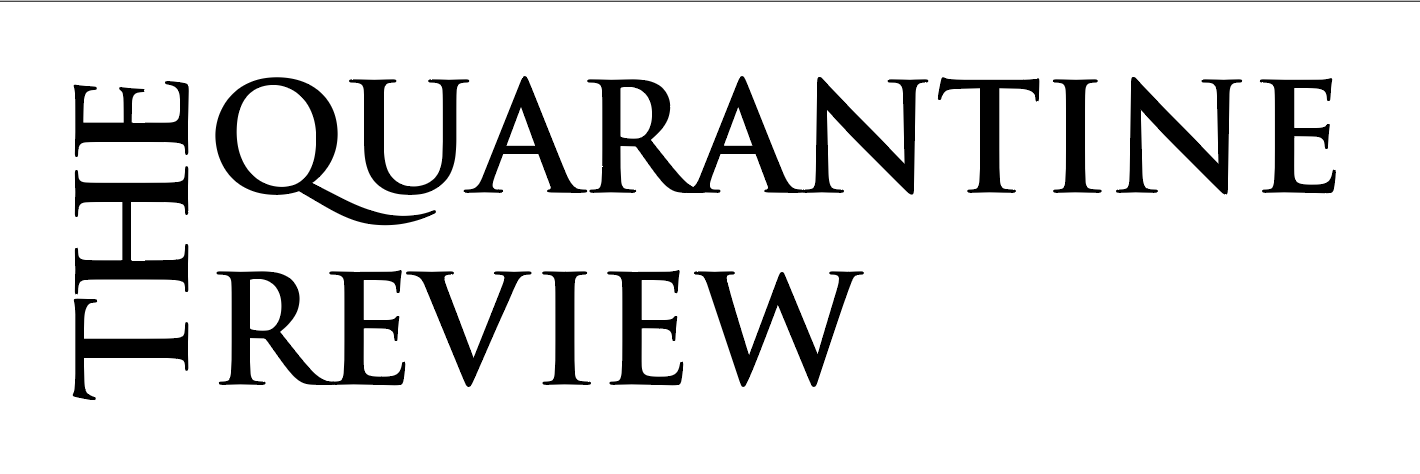Sitting Still
BY WARIS AHLUWALIA
It’s evening. Friday evening to be precise. Sitting in a hammock on the porch next to a maple tree. The second wave of rolling thunder has just passed overhead. The light drizzle steadily increases its volume. There is a buzzing sound of a wasp nearby putting me at slight unease.
The drizzle has escalated to a downpour and the porch is failing to do its duty as the wind blows the rain towards me. My beard is covered in a fine mist. The first instinct is to take shelter. Another breath as I watch the falling water and decide to stay put. To stay still. To ride out the storm. Confident that I will not melt.
Within a matter of minutes, the dial is slowly turned down. No longer cats and dogs, but the steady tip tap on a tin rooftop. The birds can be heard again alongside a distant air raid siren from the local firehouse. Remnant of a time before, or as they often refer to it, a simpler time.
As the clouds move eastward like a migratory herd, a thought crosses my mind: were we ever able to sit still? Someone must’ve sat here before me on this very spot. A hundred years ago. Did this person place a value on stillness? Or, were the immediate necessities of daily life too demanding for idle thoughts?
In my line of sight is the white of the porch, the brown of the tree trunks, and the many light greens of a late spring. This idyllic setting is only interrupted by black cables, slicing the view, leading to an electric power pole with its transformers, primary wires, secondary wires, cable wires, telephone wires, and ground wires moving 12,000 volts of electricity and countless data streams. If I divert my gaze slightly left to avoid this view, I can perhaps imagine myself then.
A hundred years ago, manufacturing was the most common industry Americans worked in. The average life expectancy for a man was around 48, making these my twilight years. The latest in tech were toasters and zippers. Leeches were commonly prescribed for infections.
It really is hard not to marvel at the world we live in today. The sophistication of our technology allows us to manage most aspects of our lives from the palm of our hands—from executing routine tasks to virtualized conferences with friends and strangers alike on the other side the globe.
Meanwhile, vehicles are driving themselves, and every other device in daily life makes decisions before we even realize they need to be made. It is impossible to ignore the fact that we inhabit a world of accelerated, exponential change that, just a short time ago, would have seemed almost myth-like.
Yet, for all its benefits, the evolution of our fully automated, highly intelligent, digitally native, and seamlessly interconnected environment, has also come at an incredibly high cost. Our addiction to virtual connectivity has led to innumerate adverse impacts on the quality of our lives, including deteriorating cognitive skills, declining physical activity, increased work-life imbalance, escalating sleep dysregulation, compounding social comparison, and prolonged and heightened depression and mental anxiety.
Our collective obsession with productivity got us where we are today. In the middle of a generation-defining crisis, unified by a common threat but separated by the inequities we have comfortably accepted for centuries.
On Zoom calls and Instagram Live sessions, people acknowledge their privileges as a means to by-pass responsibility and complicity.
We read about the great pause. All over the world, reduced human activity has allowed our planet to begin healing itself, proving just how impactful human actions are on the environment. The biggest question I have is whether we will take any of the lessons learned during this re-set with us to the other side, whenever that may be? Will they just be anecdotes at a cocktail party or serve as blueprints for new world?
That is for each of us to decide as individuals. To take responsibility to re-shape the world, not as it once was, but as it can be.
Off in the distance, I hear the almost obsolete air raid sirens going off again. The screen on my phone lights up with an Emergency Alert. Tornado Warning in this area till 7:45 p.m. EDT.
Take shelter now.
Actor and designer WARIS AHLUWALIA is driven by a deep and abiding desire to create experiences that captivate, transport, and shift perception. He is the founder of House of Waris, a company dedicated to exploring design through craftsmanship. Working across disciplines, he exhibits an unwavering commitment to creating a more thoughtful way of living.

